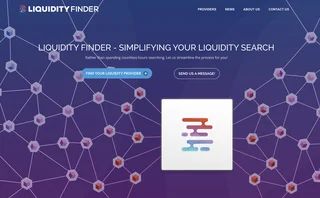
Industry should be ready for reporting deadline, warns Esma

Some buy-side firms might miss a looming deadline for trade reporting of over-the-counter derivatives in Europe but market participants have had plenty of time to prepare and should be ready for February 12, a senior official at the European Securities and Markets Authority (Esma) has warned.
Under the European Market Infrastructure Regulation (Emir), trade reporting begins 90 days after the first trade repositories have been approved. Following Esma's approval of the first batch of repositories in November, market participants have been scrambling to get the necessary infrastructure in place to begin reporting on February 12.
"We are talking here about potentially hundreds of thousands of counterparties, some of whom, like small and medium-sized corporates, have never been subject to this sort of financial regulation before. One should not be surprised that a small percentage of those may not be ready by February 12," says Rodrigo Buenaventura, head of the markets division at Esma in Paris, speaking exclusively to FX Week.
While mandatory trade reporting began in the US under the Dodd-Frank Act early last year, it is more complex in Europe as Emir states that both counterparties to a trade are responsible for reporting, which means a single unique trade identifier (UTI) must be generated and reported by both the bank and its client. With the deadline now less than five weeks away, many participants expect compliance to be patchy.
"The chances of all participants being ready for reporting on February 12 are nil. Absolutely nil. That has been obvious for a long time, but it's anyone's guess what will happen when the date comes around," says an official at one market infrastructure provider.
While Esma has shown no inclination to move the deadline, it will be up to national regulators to determine how they wish to address non-compliance in the early days. But despite the complexities and challenges, Buenaventura insists the industry has had sufficient time to prepare and Esma has done its part to support those preparations.
"Some trade reporting regulations under Emir have been in place for over 13 months, so market participants have known about these obligations for quite some time. We have conducted a significant amount of outreach to participants on the sell side and buy side to inform them of the changes," he says.
In the FX market, the major sticking point has been the generation of UTIs, which must be approved for each specific trade by both counterparties and then passed on to the trade repository. With a multitude of repositories set to operate in Europe, arriving at a consistent system for all participants has been a tricky process. Esma last year rejected a proposal made by the Global Financial Markets Association and the industry continues to grapple with the challenge.
"We have analysed different industry initiatives, but we have not decided to endorse a particular way to construct a UTI as the only way to construct it," says Buenaventura. "We have deliberately left that up to the industry, which has had 13 months to develop workable solutions. We recognise that UTI generation in the FX market is more complicated – the number of non-financial companies involved in reporting, and the absence of a central hub or CCP, makes it a big challenge. We have not ruled out issuing further guidance on this matter before or after February 12."
Further reading
Only users who have a paid subscription or are part of a corporate subscription are able to print or copy content.
To access these options, along with all other subscription benefits, please contact customer services - www.fx-markets.com/static/contact-us, or view our subscription options here: https://subscriptions.fx-markets.com/subscribe
You are currently unable to print this content. Please contact customer services - www.fx-markets.com/static/contact-us to find out more.
You are currently unable to copy this content. Please contact info@fx-markets.com to find out more.
Copyright Infopro Digital Limited. All rights reserved.
You may share this content using our article tools. Printing this content is for the sole use of the Authorised User (named subscriber), as outlined in our terms and conditions - https://www.infopro-insight.com/terms-conditions/insight-subscriptions/
If you would like to purchase additional rights please email info@fx-markets.com
Copyright Infopro Digital Limited. All rights reserved.
You may share this content using our article tools. Copying this content is for the sole use of the Authorised User (named subscriber), as outlined in our terms and conditions - https://www.infopro-insight.com/terms-conditions/insight-subscriptions/
If you would like to purchase additional rights please email info@fx-markets.com
More on Market Data
Mosaic to bring real-time performance analytics to FX
Platform will be in production with a major client in third quarter
New Change FX to supply independent rate to Jyske Bank
Danish bank will use provider’s independent FX data for better analytics
LiquidityFinder turns on liquidity matchmaking site
The website offers a consolidated view of liquidity providers for simple comparison
WM/Reuters Thai baht benchmarks to be sourced from Matching Clob
The baht benchmarks are now based on trade data rather than indicative rates
Bloomberg adds real-time market data service to cloud
Its front-office solution, B-pipe, is available via Amazon Web Services
Quick to distribute Fenics’ Kace products in Japan
The agreement enables Quick to offer an integrated solution to clients
Thomson Reuters unit becomes Refinitiv
TR’s Financial & Risk changes name, following majority stake buyout led by Blackstone
Central banks adapt to faster markets, says BIS report
Fast pace of today’s markets means central banks must change approach to fulfil responsibilities







